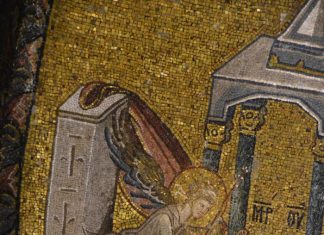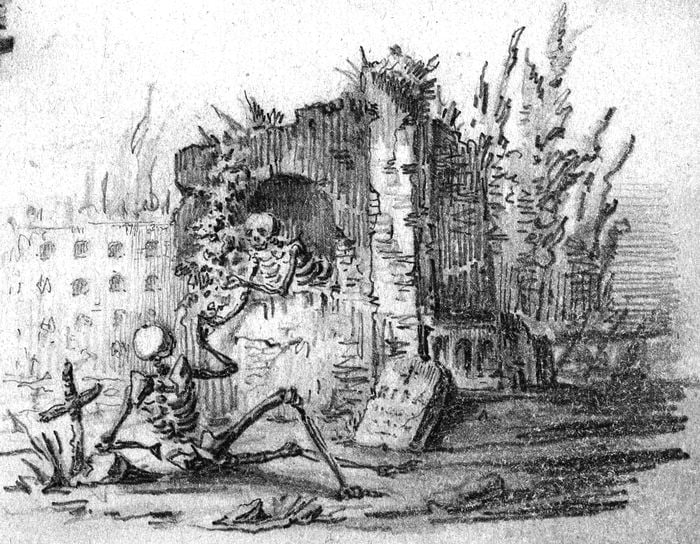Mr. Pope gesticulated with thin hands and seemed upon the verge of eloquence. Then he spoke unanswerably. “But I love her,” he said. John Gay`s reply was a subdued whistle. He, in common with the other guests of Lord Harcourt, at Nuneham Courtney, had wondered what would be the outcome of Mr. Alexander Pope`s intimacy with Sarah Drew. A month earlier the poet had sprained his ankle upon Amshot Heath, and this young woman had found him lying there, entirely helpless, as she returned from her evening milking. Being hale of person, she had managed to get the little hunchback to her home unaided. And since then Pope had often been seen with her.
The luxury
This much was common knowledge. That Mr. Pope proposed to marry the heroine of his misadventure afforded a fair mark for raillery, no doubt, but Gay, in common with the run of educated England in 1718, did not aspire to be facetious at Pope`s expense. The luxury was too costly. Offend the dwarf in any fashion, and were you the proudest duke at Court or the most inconsiderable rhymester in Petticoat Lane, it made no difference; there was no crime too heinous for “the great Mr. Pope`s” next verses to charge you with, and, worst of all, there was no misdoing so out of character that his adroit malignancy could not make it seem plausible.
Now, after another pause, Pope said, “I must be going now. Will you not wish me luck?”
“Why, Alexander why, hang it!” was Mr. Gay`s observation, “I believe that you are human after all, and not just a book in breeches.”
He thereby voiced a commentary patently uncalled-for, as Mr. Pope afterward reflected. Mr. Pope was then treading toward the home of old Frederick Drew. It was a gray morning in late July.
“I love her,” Pope had said. The fact was undeniable; yet an expression of it necessarily halts. Pope knew, as every man must do who dares conserve his energies to annotate the drama of life rather than play a part in it, the nature of that loneliness which this conservation breeds. Such persons may hope to win a posthumous esteem in the library, but it is at the bleak cost of making life a wistful transaction with foreigners. In such enforced aloofness Sarah Drew had come to him strong, beautiful, young, good and vital, all that he was not and had serenely befriended “the great Mr. Pope,” whom she viewed as a queer decrepit little gentleman of whom within a week she was un- feignedly fond.
Read More about The Secret History part 82








